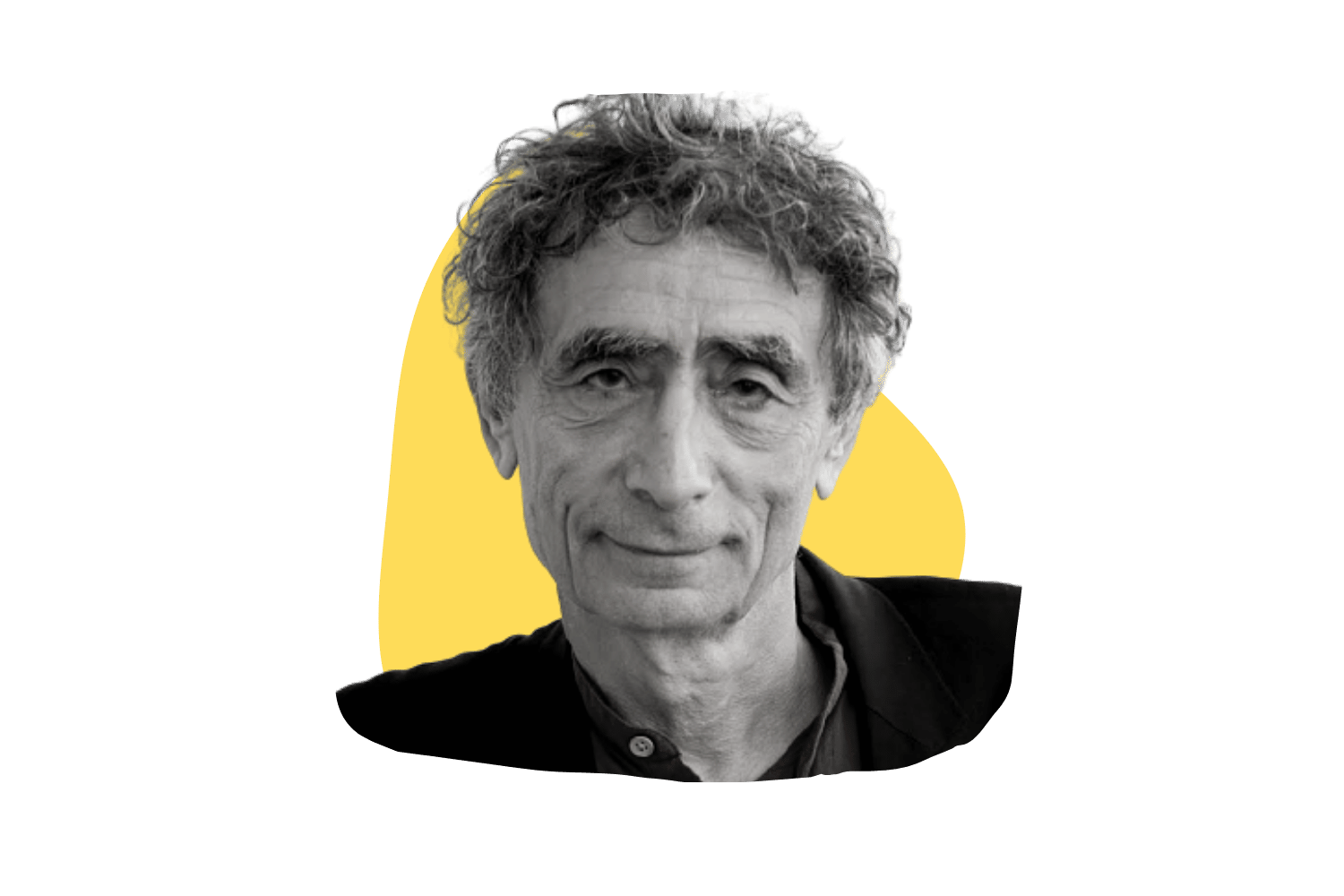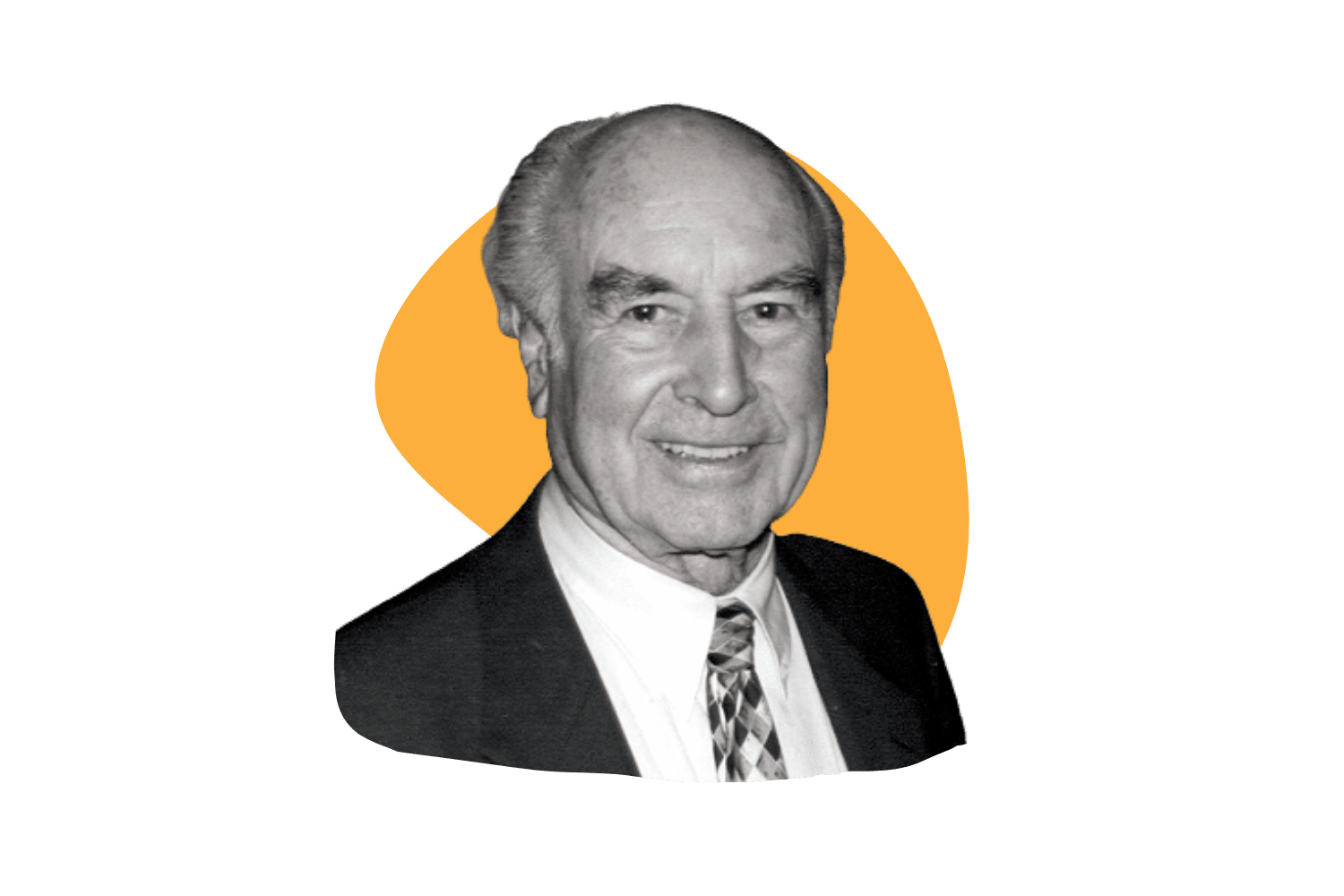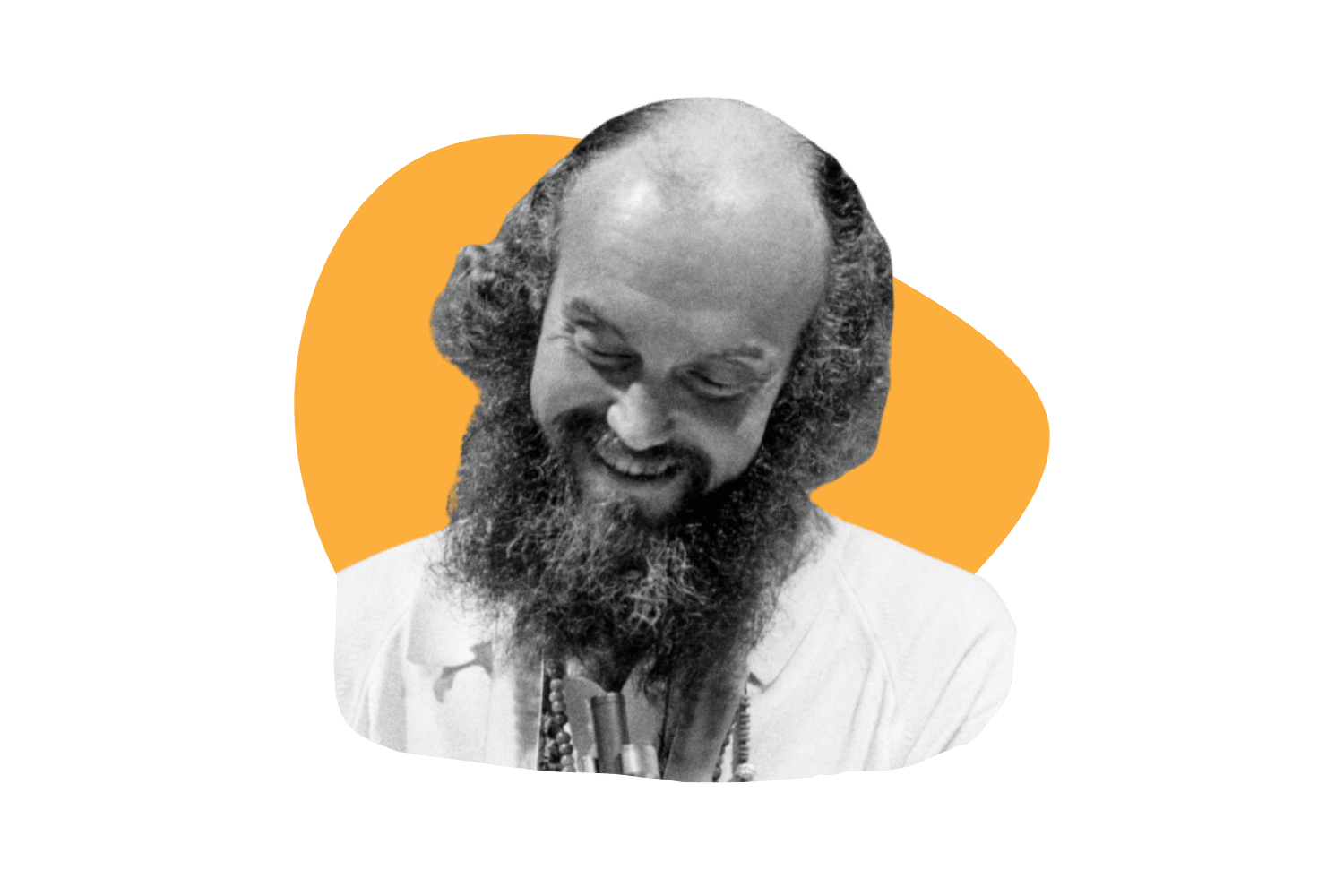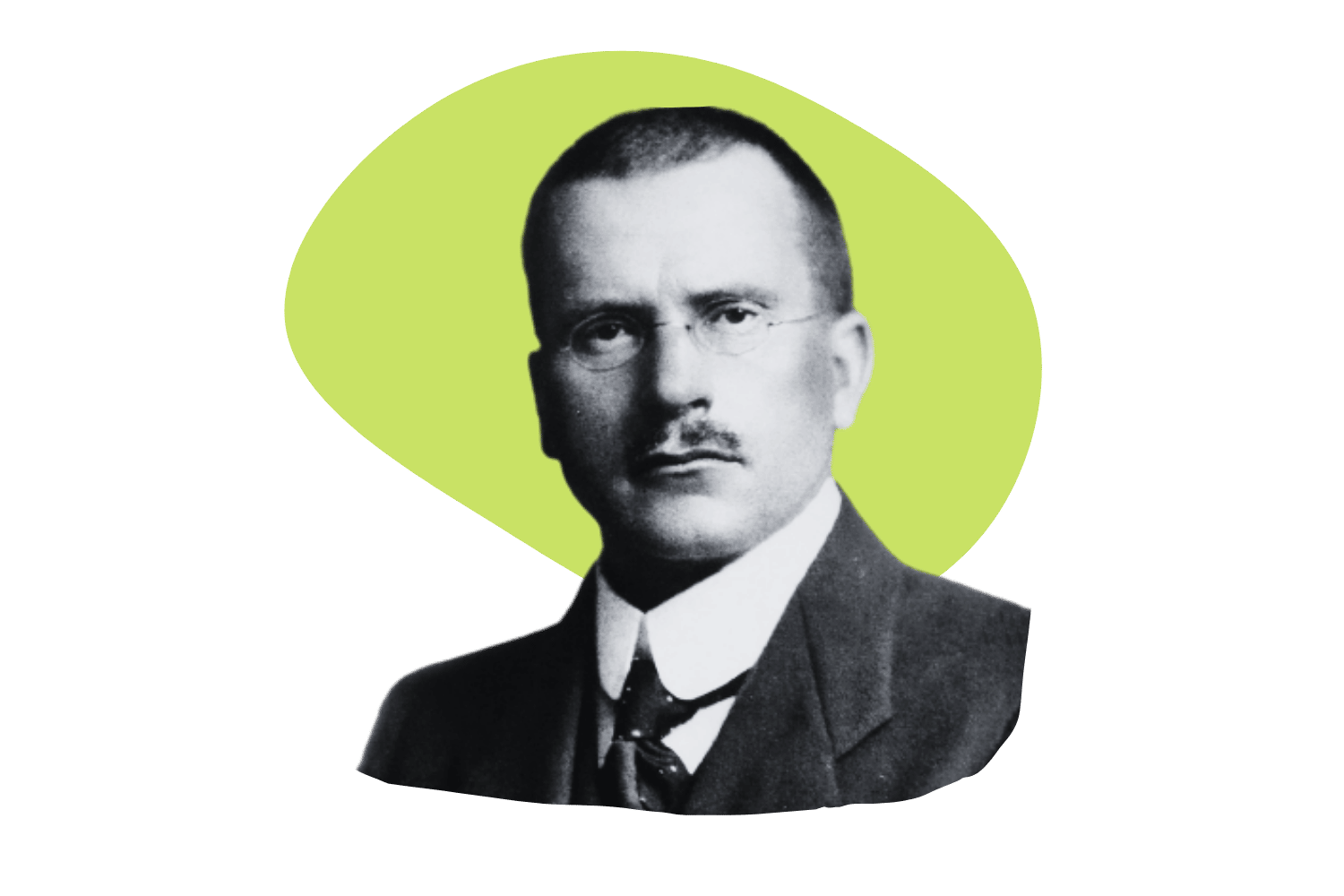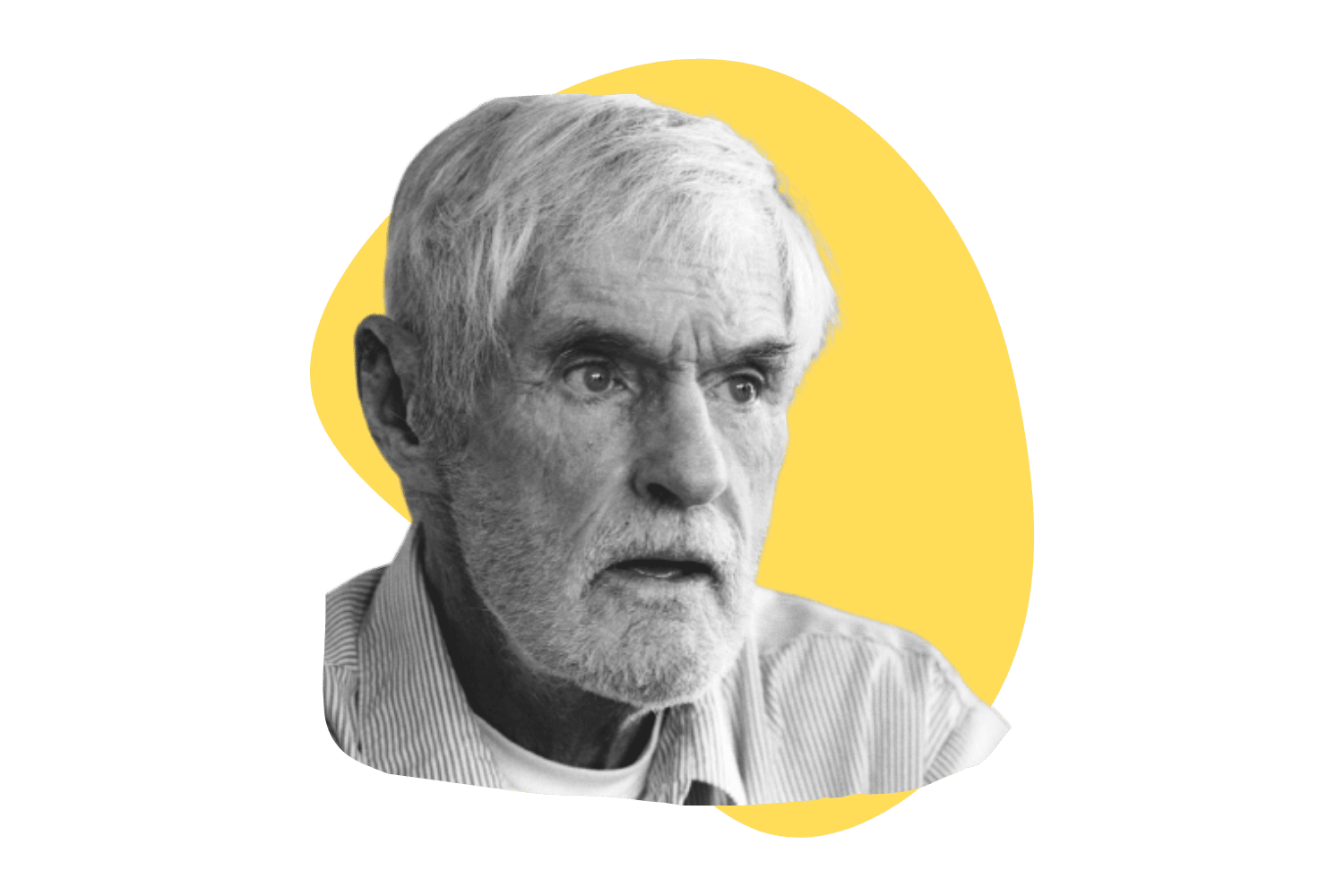Alan Watts: Life, Lectures, Philosophy, & Famous Quotes
“Man suffers only because he takes seriously what the gods made for fun”.
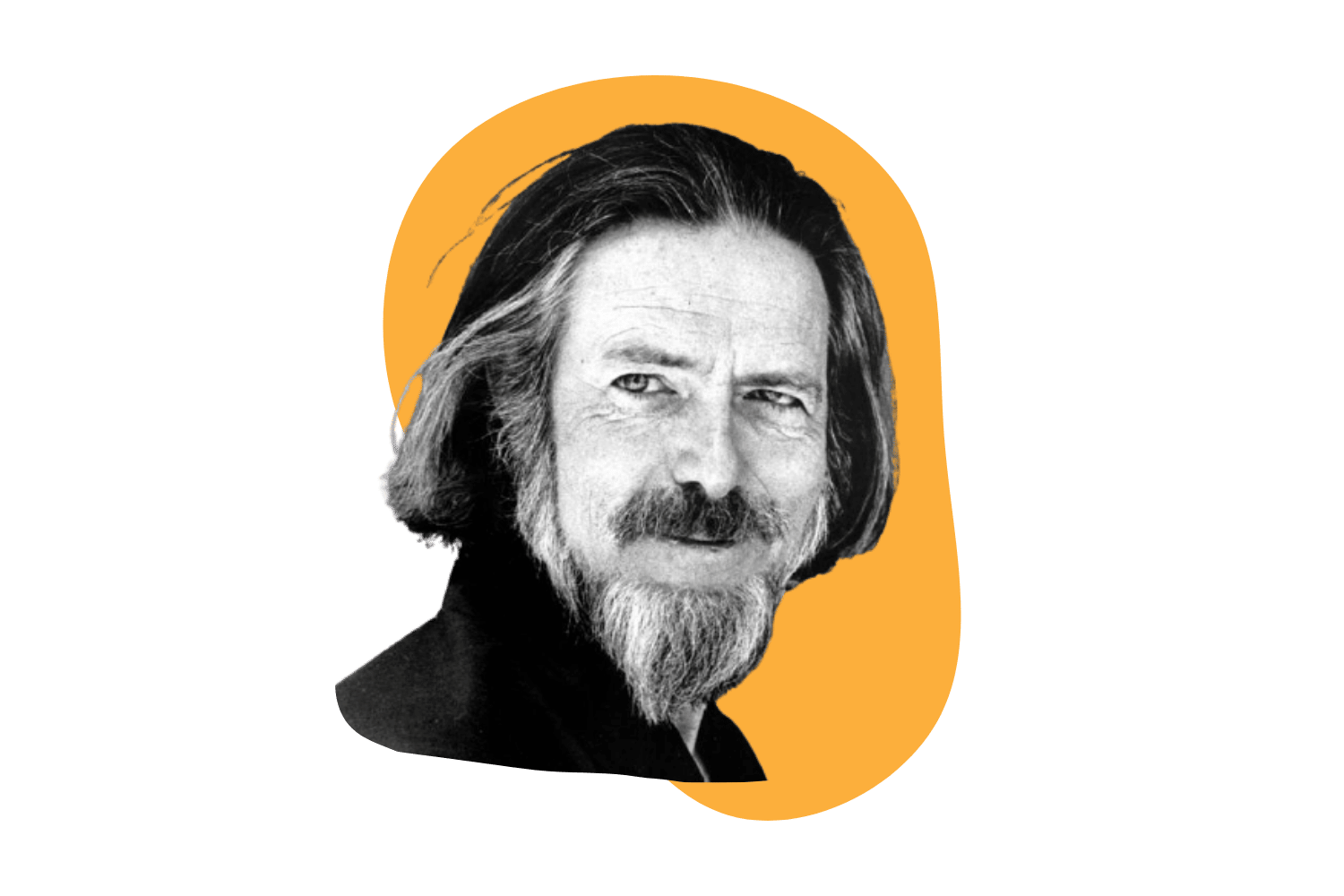
Alan Watts was one of the most influential philosophers in modern history.
He was loved for his ability to eloquently translate complex Eastern philosophical ideas for a Western audience. He was one of the primary drivers of the counterculture in the 1960s and a proponent of the use of psychedelics as a tool for self-discovery and enlightenment.
Alan Watts died in 1973 but managed to attain digital immortality in the form of his many lectures on platforms like Youtube and through various podcasts and radio networks.
Let’s uncover the life and philosophy of Alan Watts.
| Birth & Death | January 6, 1915 – November 16, 1973 |
| Personality Type | ENFP |4w5 |
| Occupation | Writer & Philosopher |
| Nationality | British |
The Life of Alan Watts
Alan Watts was born in South London in 1915. He was raised in a Christian household but quickly came to the realization that Christianity couldn’t quite answer his burning desire to understand the real meaning of life.
Early on, Watts gained an interest in Asian culture through some art his mother had in their home. He once wrote, “I was aesthetically fascinated with certain clarity, transparency, and spaciousness in Chinese and Japanese art. It seemed to float…”
Watts spent his childhood at strict Christian boarding schools — the indoctrination of which he viewed as “grim and maudlin.”
In his teens, Watts visited France, where he was exposed to Buddhism through an eccentric and wealthy family friend. This is what eventually led him to pursue his studies in the ways of Buddhism and other Eastern philosophies upon returning to London.
Watts was particularly interested in Zen Buddhism, which he considered to be the synthesis of Taoism, Confucianism, and Buddhism.
He published his first book in 1936 titled The Spirit of Zen. Since then, he’s published over 25 books on Zen, Taoism, and other philosophies. He wrote the first best-selling book on Buddhism, titled The Way of Zen (1957).
After getting married to his first wife, Watts and his wife moved to the United States. He spent several years studying Christian theology and other religious concepts in New York and later joined the faculty at the American Academy of Asian Studies in San Francisco, California (1951–1957).
After leaving the academy, he became a weekly speaker on a radio program run by the Pacifica Radio station KPFA in Berkeley. This was an unpaid position, but by the time he left in 1962, he had a large following of loyal listeners.
He continued to write books and give seminars, which were often recorded and broadcasted over various radio stations (and still are today).
The primary criticism of Alan Watts was the fact that despite all the time he spent discussing morality and enlightenment, he was consistently unfaithful to his wives (of which he had three), absent to his children (he fathered seven children), and was a frequent and heavy smoker and drinker.
Despite many considering him to be enlightened (something he, himself, contested), Watts continued to suffer and cause suffering on others.
Watts has always been honest and open about his flaws, and his friends often referred to him as a kind, likable, and friendly man.
He died, exhausted, in 1973 after returning home from a speaking tour in Europe.
In order to keep up with his child support, Watts had to do several talks per week. By this time, he was smoking non-stop and drinking a bottle of vodka per day.
The Philosophy of Alan Watts
Watts was considered a prophet of contemporary “pick n’ mix spirituality” and combined ideas from Buddhism, Taoism, Catholicism, and various other philosophies and religions.
To distill his teachings into the fewest words possible, Watts believed that the true meaning of life was meaninglessness.
There are no failures, no mistakes, no successes, no good or bad things. There are just things that happen that contrast with other things that happen.
Ultimately, we don’t need to take things quite so seriously.
Watts often talked about the idea of the “ego in a bag of skin” as being a myth of modern philosophy. He strongly contested this idea. Instead, Watts believed there is no “self”, just IT, the Tao, the universe — and you’re inescapably a part of it.
“We do not “come into” this world; we come out of it, as leaves from a tree. As the ocean ‘waves,’ the universe ‘peoples.’”
Ironically, he believed over-strenuous spiritual practice strengthened the ego. He suggested we just relax and let go. That we don’t need to change or do anything to become enlightened. This idea is prevalent in the ideas of Zen Buddhism, which suggests that we are perfect just as we are, but that we’ve merely forgotten our true nature.
Watts believed the problems that plagued most Westerners came from two products of modernity:
- Our fear of meaninglessness
- Our need to think in terms of gains and losses
He argued that the ideas of Buddhism, Taoism, Hinduism, and other Eastern philosophies could be applied as a form of psychotherapy to solve these problems.
What Was Alan Watts’ Stance on Psychedelics?
His book Nature, Man & Woman mentioned some of his early work involving psychedelic substances for the sake of mystical insight. He had his first psychedelic experience with mescaline — which is a common initiating substance among many great thinkers in the psychedelic space around this time.
Watts also experimented with LSD and marijuana in 1958, which inspired the book The New Alchemy.
The influence of his psychedelic use can be spotted throughout the books and essays he wrote in the 1960s. One of the most influential psychedelic-inspired writings was his book titled The joyous Cosmology (1962).
Watts believed psychedelics were a valuable tool for mystical discovery and understanding.
He once stated — “I don’t think that LSD is an automatic psychotherapy at all. If you’re going to use it for that purpose, you need psychotherapy in the ordinary way along with it”. He referred to LSD as an exploratory instrument, like a microscope for exploring concepts inside the body rather than outside.
Watts was known (somewhat controversially) for initiating each of his seven children into LSD on their 18th birthdays.
Best Alan Watts Quotes
1. On Suffering
Man suffers only because he takes seriously what the gods made for fun.
Muddy water is best cleared by leaving it alone.
What the devil is the point of surviving, going on living when it’s a drag? But you see, that’s what people do.
The more we struggle for life (as pleasure), the more we’re actually killing what we love.
Running away from fear is fear, fighting pain is pain, trying to be brave is being scared. If the mind is in pain, the mind is pain. The thinker has no other form than his thought. There is no escape.
We cannot be more sensitive to pleasure without being more sensitive to pain.
2. On Presence
The only way to make sense out of change is to plunge into it, move with it, and join the dance.
Life exists only at this very moment, and in this moment, it’s infinite and eternal, for the present moment is infinitely small; before we can measure it, it has gone, and yet it exists forever.
The art of living is neither careless drifting on the one hand nor fearful clinging to the past on the other. It consists in being sensitive to each moment, in regarding it as utterly new and unique, in having the mind open and wholly receptive.
Zen does not confuse spirituality with thinking about God while one is peeling potatoes. Zen spirituality is just to peel the potatoes.
The menu is not the meal.
Meditation is the discovery that the point of life is always arrived at in the immediate moment.
The only Zen you’ll find on mountain tops is the Zen you bring up there with you.
If happiness always depends on something expected in the future, we are chasing a will-o’-the-wisp that ever eludes our grasp, until the future, and ourselves, vanish into the abyss of death.
Zen is a liberation from time. For if we open our eyes and see clearly, it becomes obvious that there is no other time than this instant, and that the past and the future are abstractions without any concrete reality.
3. On the Meaning of Life
Trying to define yourself is like trying to bite your own teeth.
This is the real secret of life — to be completely engaged with what you are doing in the here and now. And instead of calling it work, realize it’s play.
If you really understand Zen, you can use any book. You could use the Bible. You could use Alice in Wonderland. You could use the dictionary, because the sound of the rain needs no translation.
We do not “come into” this world; we come out of it, as leaves from a tree. As the ocean “waves,” the universe “peoples.”
The meaning of life is just to be alive. It’s so plain and so obvious and so simple. And yet, everybody rushes around in a great panic as if it were necessary to achieve something beyond themselves.
You are a function of what the whole universe is doing in the same way that a wave is a function of what the whole ocean is doing.
Things are as they are. Looking out into it the universe at night, we make no comparisons between right and wrong stars, nor between well and badly arranged constellations.
4. On Ego
I find that the sensation of myself as an ego inside a bag of skin is really a hallucination.
You are an aperture through which the universe is looking at and exploring itself.
Never pretend to a love which you do not actually feel, for love is not ours to command.
One is a great deal less anxious if one feels perfectly free to be anxious, and the same may be said of guilt.
5. On Death
Try to imagine what it will be like to go to sleep and never wake up… now try to imagine what it was like to wake up having never gone to sleep.
If you’re afraid of death, be afraid. The point is to get with it, to let it take over — fear, ghosts, pains, transience, dissolution, and all. And then comes the hitherto unbelievable surprise; you don’t die because you were never born. You had just forgotten who you are.
When you die, you don’t have to deal with everlasting nonexistence because that’s not an experience.
Best Alan Watts Lectures
Alan Watts gave hundreds of lectures over the course of several decades. Many (but not all) of these lectures were recorded.
Here are my top 5 (free) Alan Watts lectures:
- The Joker
- The Taoist Way
- Do You Do it Or Does It Do You?
- The Art of Attracting Your Lover
- Zen Stories
Final Thoughts: Who Was Alan Watts?
Alan Watts was one of the greatest thinkers of the modern era. His ideas and talks have been attributed by many to be the spark for initiating their own spiritual exploration. He was adored and heralded as a guru — despite Watts himself rejecting this title.
He had an incredible amount of wisdom, picked up over the course of many years of study and scholarship.
By mid-life, Watts was in high demand. He never had trouble finding speaking gigs to pay the bills. His lectures were almost never prepared for — instead, he relied on his deep knowledge of the topics in which he spoke about.
But he was not free from flaws, and he did not consider himself “enlightened” or a “guru” — despite having a wide and devout following. Watts suffered as much — if not more — than everybody else. He was a poor father, an unfaithful husband, and a chronic alcoholic who eventually died as a result of his lack of care and attention given to his own health.
When it comes to the teachings of Alan Watts, don’t expect to find an answer to the deeper meanings of life. That was never the point. Watts didn’t believe there was even a question, to begin with, and never really attempted to answer it.
Instead, Watts was a purveyor of ideas. He spent his life sifting through religious and philosophical concepts and distilling them down their essence.


